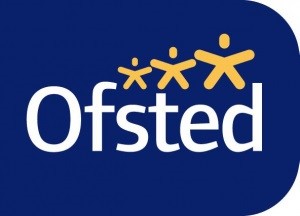
Get Ready for the London OBC
It’s the season of the OBC. They are being held in Bournemouth, Bolton, Guildford, Birmingham, Liverpool, Plymouth… and London is hosting its OBC on Thursday 11th October at Bain &…
March 26th 2014
The London conversation will take place at 9.30 on Friday the 11th April at LEYF Head Office (121 Marsham St, SW1P 4LX). The aim of the ‘Conversation’ is to identify how Ofsted inspection and regulation helps the sector achieve our shared goal of delivering outstanding early years education and childcare for all children and families.
As with our initial meeting this is an open meeting on a first come first served basis. However to make sure we get a fair representation please can those of you wanting to come:
It would be great to welcome colleagues from nurseries, pre-schools, childminder groups, local authorities, membership groups and policy makers.
I will Chair the meeting with my co-chair Catriona Nason, known to many of you for setting up and managing the OBC website.
To book a place please click through to this link. We are putting a limit on numbers as there is limited capacity so do hurry
The agenda reflects our initial concerns and the recent feedback from our colleagues in the South West and the North who have already met with their Regional Directors. It will be strategic in tone and focused on the broader issues rather than addressing individual complaints.
In order to prepare and to make sure we have facts to support our requests and challenges, it is important to read some of the more up to date early years announcements from Ofsted.
The Agenda shaped as an issue and questions.
Last week, Sir Michael Wilshaw wrote to the early years inspectors urging them to ‘focus on evaluating whether children are being adequately prepared for the start of their statutory schooling’ and lists factors that he feels should be taken into account when considering a setting’s rating.
Wilshaw writes:
‘Inspectors should report on what makes teaching and assessment effective rather than on its style. I expect inspectors to apply common sense when observing how well children learn and how effectively adults teach children to develop skills, knowledge and understanding. I want to know how well settings help children to catch up when they enter with skills that are lower than those typical for their age. I expect reports to be clear about the extent to which a provider prepares children for school.’
Now in addition to these issues there are some bigger more philosophical shifts in Ofsted’s approach that will have implications for the sector. I added some suggested questions just to get you in the mood
Issue: London has seen a rise in the quality of its schools again this year and inspection outcomes overall were the best in the country in 2012/13. In recent years, the proportion of good or outstanding schools has increased dramatically. More than eight in every 10 children and young people benefit from education in a good or outstanding school in London. However, the picture for students post-16 is not nearly so healthy. Despite improvements this year, more than a third of the 45 colleges in the capital are less than good. and not up to scratch.
Question: How will the Ofsted’s improvement agenda address this? This is an issue for us recruiting nursery staff as from September 2014 they need an A to C to as entry level for a Level 3 qualification.
Issue: Ofsted propose to introduce a separate graded judgement about the overall effectiveness of Nursery and Reception classes in the inspection framework for maintained schools and academies. We would also require inspectors to write a discrete paragraph evaluating this provision. We propose developing a separate set of brief evaluation criteria, which will be published in the School inspection handbook, to support inspectors reaching a judgement on this stage and to help schools’ self-evaluation. These criteria would encompass:
– achievement
– the quality of the teaching
– behaviour and safety
– leadership and management.
Inspectors would take account of this separate judgement when making their judgement on the overall effectiveness of the school.

It’s the season of the OBC. They are being held in Bournemouth, Bolton, Guildford, Birmingham, Liverpool, Plymouth… and London is hosting its OBC on Thursday 11th October at Bain &…
Recently, I wrote about the importance of visiting other nurseries so I was delighted when I was given a “golden ticket” by Community Playthings to visit…
This week I visited the West Country to speak to a group of people working or interested in working in social enterprise. I really wanted to have a day at…